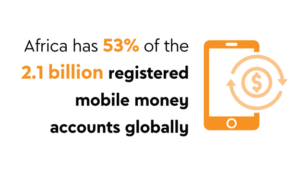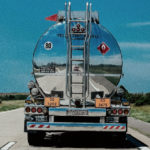The ‘Kingdom in the Sky’ is how Lesotho has always been known. This influenced the nation’s new branding, which depicts the country’s historic mokorotlo hat as viewed from above. The hat itself is inspired by the Qiloane mountain, reflecting a symbolic heritage derived from King Moshoeshoe, who founded the Basotho nation in Thaba Bosiu, which in turn reflects the strength, resilience, persistence and tenacity of the nation.
In addition to its scenic beauty, Lesotho has always had much to offer, including the purity of its water, which, incidentally, is supplied to South Africa’s Free State and Gauteng provinces; its renewable energy, hydrogen and solar power potential; conditions for agriculture and agro-processing; good manufacturing track record; technology and innovation opportunities; and tourism and creative industries.
Molise Ramaili, interim CEO of the Lesotho National Development Corporation (LNDC), explains that the rebranding of the nation allows the organisation to focus on the key factors that will fuel the growth of Lesotho’s economy, ‘to the extent that we ensure participation of both local and foreign direct investors, and the formation of enterprises where skills are transferred between international and domestic investors. In this way we will build the requisite knowledge and skills in the country to drive economic growth and intergenerational value’.
There are two major objectives. Inwardly the LNDC will be focused on its domestic sentiment; it aims to foster a deeper sense of patriotism. ‘We are striving to ensure that Basotho people understand the principles that underpin the formation of our nation, and embrace the moral fibre that unites us,’ says Ramaili. ‘This includes the support of locally made products so that we can harness our natural abilities and resources for the benefit of economic growth for all.’
The outward objective, he says, is directed at economic growth, through the encouragement of foreign direct investment. ‘We have a focused approach on key sectors from which we believe the nation can prosper.’

Lesotho’s most significant proposition, and one of extreme interest to neighbouring countries, is renewable energy, which is the driving theme of Lesotho’s Extended National Strategic Development Plan. ‘The water we have in abundance highlights opportunities for hydropower; the abundant sunshine for solar energy; and, given Lesotho’s altitude, wind power,’ says Ramaili.
‘The projections show that Lesotho will be a net exporter of renewable energy to the southern region in the near future. Given our strong ESG principles, we are also mindful to ensure preservation of Lesotho’s natural resources for future generations.’
Water and elevation are also dominant in providing a conducive environment for the development of various agricultural products, some of which are only able to thrive in the special conditions that the country provides. Ramaili provides an example.
‘Deciduous fruits ripen a month before other regions in Africa, giving us a competitive edge to access markets ahead of other countries. We also have an advantage in the prolific growth of medicinal cannabis.’
The LNDC is aware that products such as these are being exported without any beneficiation, and this is set to change.
‘Rosehip is one such example,’ he says. ‘We export a significant amount of raw rosehip out of the country for oil extraction, which is then imported back to Lesotho at higher prices.’
Support of the LNDC’s change strategy comes from the government of Lesotho, the Lesotho Tourism Development Corporation, leading private sector entities, cultural leaders, institutions of higher learning and local and international business sectors, while the rebranding campaign itself was pioneered by King Letsie III.
‘The royal family leadership in the campaign is a strong pull-card for other monarchy endorsement and buy-in, especially those that subscribe to similar national values. This is reflected in the attendance of our Investment Conference in May by countries such as Germany, Indonesia, India, Kenya, Turkey and Botswana,’ says Ramaili. ‘Alongside are financial institutions, equity portfolio companies, business communities and other local and international investors.’
Collaboration with these entities is enticing for investors, given the number of investment incentives on offer by Lesotho and the LNDC.Some of those that are tax related include research and development expenses being deductible, provided they are incurred on production income subject to tax; there is a 10% corporate tax on profits generated from the sale of goods produced from manufacturing and agricultural activities undertaken in Lesotho; and a 15% withholding tax on payments made in respect of external management/technical fees, interest and royalties related to manufacturing income.
Other withholding tax incentives of interest to resident companies that have non-resident shareholders offer 10% on service contracts, 25% in dividend distribution and none at all on dividends distributed from manufacturing income. Corporates are able to avail of a 25% corporate income tax on profits generated from the sale of goods and service in all sectors, and if mining activities are involved, there is a 100% depreciation allowance on investment in mining equipment.
Other benefits are that agricultural inputs and animal feeds are zero-rated, as are exports; pipe water is exempt from VAT; there is an 8% reduced rate for electricity; training or tertiary education expense is allowable at 125%; and, across all sectors, competitive labour costs.
The LNDC extols the virtues of doing business with and in Lesotho. ‘Our communication infrastructure is fast developing,’ says Ramaili. ‘Our major mobile network operators include the likes of Vodacom Lesotho and Econet Telecom Lesotho, ensuring good coverage in towns and cities. It might be that our rural areas have some spotty reception, but we have a fibre optic internet expansion in place.’

This has established the strength of a mobile-centric society whereby M-Pesa, C-Pay and EcoCash financial transactions are in play. Alongside are commercial banks such as Standard Lesotho Bank, First National Bank of Lesotho, Nedbank Lesotho and Lesotho Post Bank, which provide traditional banking services.
Referring to the banking environment Ramaili says that while the brand networks are concentrated in urban areas, the mobile money platforms bridge the gap in rural communities, ‘creating a robust financial ecosystem for personal and business needs’.
Tourism continues to be a mainstay. Here the LNDC is supporting and driving private sector sponsorships that attract more tourists to its attractions, such as Afriski – a unique skiing experience in Africa; Moshoeshoe Walk; the Maletsunyane Braai Festival; the Lesotho Gin and Trout Festival; and the Lesotho Wine Festival.
‘We are also elevating tourism support through our investment and trade promotion unit, which is charged to sell Lesotho as an investment destination of choice. Tourism also drives the participation of communities in projects because they are landowners, and through developing trusts for their land, they can become beneficiaries of those trusts and benefit from their selling of arts and crafts, music, culture and local cuisine,’ says Ramaili.
Investor decisions should take into consideration Lesotho’s ongoing infrastructure development; its duty-free quota/access to the US market under AGOA; tariff-free access to the regional market under SACU and SADC; preferential trade agreements with the EU and UK; wider access to the African market under the AfCFTA; and its strong transport links with South Africa.
There is another aspect that deserves highlighting – that of Lesotho’s ‘liberal mindset’, according to Ramaili.
‘Liberal thinking is aligned to patriotism, which means embracing diverse cultures and acceptance of people of different ethnicities, in line with the principles that founded the Basotho nation,’ he says.
‘Our people embrace coexistence to the point of being able to engage openly in business transactions. On this foundation, Lesotho is part of the global village spirit.
‘The strong entrenchment of our rebranding will be realised and experienced in the unique manner in which we blend the business potential with a fulfilling lifestyle. The combination of a growing economy, breathtaking scenery and a welcoming community makes Lesotho a haven for investors seeking long-term success and a rich, fulfilling personal experience.’
















